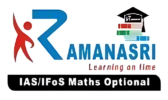UPSC Maths Optional F.A.Q.s (Frequently Asked Questions)

For Complete preparation of Maths Optional for UPSC you can join our Best Maths Optional Coaching in Delhi .
Are calculators allowed in the UPSC Maths paper? Find out the answer to this frequently asked question and understand the reasoning behind it. The UPSC aims to test problem-solving skills, logical reasoning, and mathematical aptitude. Learn how to tackle the Maths paper without a calculator and discover the tools provided by the UPSC for calculations. With practice and familiarity, you can develop the speed and accuracy required to solve these problems effectively. Explore the basic mathematical concepts tested in the UPSC Maths paper and prepare yourself for success in the exams.
Does UPSC Maths Allow Optional Calculator?
When it comes to the UPSC (Union Public Service Commission) exams, one of the most frequently asked questions is whether candidates are allowed to use a calculator for the Maths paper. The answer to this question is both simple and complex.
The simple answer is yes, the UPSC does allow the use of calculators in the Maths optional paper along with other optional papers also. Candidates are expected to perform all calculations by using calculators only, without the aid of any other electronic devices.
The complex answer, however, lies in the reasoning behind this decision. The UPSC aims to test a candidate’s numerical analysis problem-solving skills . By prohibiting the use of calculators in the prelims CSAT, the UPSC ensures that candidates rely on their own abilities to solve mathematical problems.
While it may seem daunting to perform calculations without a calculator, it is important to remember that the UPSC Maths paper is designed to test basic mathematical concepts. With practice and familiarity, candidates can develop the speed and accuracy required to solve these problems without the need for a calculator.
It is worth noting that the UPSC does provide candidates with rough sheets for calculations. These rough sheets can be used to jot down intermediate steps, perform long solutions or any other calculations that may be required during the exam.
So, while a calculator may be allowed in the UPSC Maths paper, candidates can rest assured that they have the necessary tools to tackle the questions effectively.
In the UPSC Civil Services Examination, candidates have the option to choose Mathematics as an optional subject. This choice is often favored by candidates with a strong mathematical background or those who have a genuine interest in the subject. However, many candidates often wonder about the marking scheme for the Mathematics optional paper, particularly whether step marking is followed.
Step marking refers to a system where candidates are awarded marks for each step they take towards solving a problem, even if the final answer is incorrect. This system is commonly used in subjects like Mathematics and Physics, where the process of arriving at the solution is equally important as the solution itself.
When it comes to the UPSC Maths optional paper, the marking scheme does not explicitly mention step marking. However, it is important to note that the UPSC examiners are experienced professionals who understand the value of the step-by-step approach in solving mathematical problems.
While the exact marking scheme is not disclosed by the UPSC, it is generally believed that partial marks may be awarded for correctly executed steps, even if the final answer is incorrect. This means that candidates who show a clear understanding of the concepts and demonstrate a logical approach to problem-solving are likely to be rewarded.
It is important for candidates to present their solutions in a clear and organized manner, showing all the steps involved in arriving at the answer. This not only helps the examiner follow the candidate’s thought process but also increases the chances of receiving partial marks for correctly executed steps.
In conclusion, while the UPSC does not explicitly mention step marking for the Maths optional paper, it is advisable for candidates to adopt a step-by-step approach and present their solutions in a clear and organized manner. This will enhance their chances of scoring well in the examination.
Not possible for student level. Everything depends upon student level. If you spend around 2 or 3 years then it will be possible maths be optional without coaching
Scaling in UPSC Mathematics Optional: A Closer Look
When it comes to the UPSC Mathematics Optional paper, scaling plays a crucial role in determining the final scores of candidates. Scaling is a process used by the Union Public Service Commission (UPSC) to ensure fairness and maintain consistency in the evaluation of answer scripts.
The scaling process is implemented to address any discrepancies that may arise due to variations in the difficulty level of different question papers. The UPSC aims to maintain a uniform standard and equalize the scores of candidates across different question papers.
During the scaling process, the raw scores obtained by candidates are adjusted to account for the difficulty level of the paper they attempted. This is done by comparing the performance of candidates in a particular paper with the performance of candidates in other papers.
The scaling process involves statistical analysis to determine the average and standard deviation of scores in each paper. Based on this analysis, the scores of candidates are adjusted to ensure that the final scores reflect their relative performance accurately.
It is important to note that scaling does not change the rank order of candidates. Instead, it ensures that candidates are evaluated on a level playing field, regardless of the difficulty level of the paper they attempted.
Scaling in the UPSC Mathematics Optional paper is a fair and transparent process that aims to maintain the integrity of the examination. It ensures that candidates are assessed based on their knowledge and understanding of the subject, rather than the specific paper they received.
For more information about UPSC Mathematics Optional and other related topics, visit mathsoptional.com.
Choosing the right optional subject for UPSC exams is crucial. Although there is A separate optional syllabus for mathematics, candidates with a strong background in the subject can choose mathematics as their optional subject. This faq blog post discusses the guidelines, syllabus, and preparation strategies for choosing mathematics as an optional subject for UPSC exams. With thorough preparation and dedicated practice, success in the UPSC exams is certainly achievable.
When it comes to preparing for the UPSC exams, choosing the right optional subject can be a crucial decision. For those with a strong background in mathematics, it is natural to wonder if there is an optional syllabus specifically designed for this subject.
Fortunately, the UPSC does offer a separate optional syllabus for mathematics. for this clck on this link below UPSC maths optional syllabus. However, this does not mean that mathematics cannot be chosen as an optional subject for the exams. In fact, many successful candidates have opted for mathematics and achieved great results.
As per the UPSC guidelines, candidates are free to choose any subject of their choice as their optional subject. The syllabus for mathematics is not explicitly mentioned, but it falls under the category of “optional subjects of graduation level.” This means that the syllabus will cover topics that are typically taught at the undergraduate level.
While there is no specific syllabus for mathematics, candidates can refer to the syllabus of mathematics offered by various universities to get an idea of the topics that may be covered in the UPSC exams. It is important to note that the syllabus for mathematics can be vast and covers a wide range of topics, including algebra, calculus, statistics, and more.
For candidates considering mathematics as their optional subject, it is essential to have a strong foundation in the subject and be well-versed in the core concepts. Additionally, solving previous years’ question papers and practicing mock tests can help candidates familiarize themselves with the exam pattern and improve their problem-solving skills.
In conclusion, while there is no separate optional syllabus for mathematics in the UPSC exams, candidates with a strong background in the subject can choose mathematics as their optional subject and prepare accordingly. With thorough preparation and dedicated practice, success in the UPSC exams is certainly achievable.
If you you havd done atleast B.S.c or B.tech from below average collage also no disadvantges by choosing maths optional to get high score in your mains through maths optional.
Any one can choose maths optional if you have genuine interest to do mathematics from NCERT class 11 & 12 onwords.
It will take around 7 months to finish entire upsc maths optional syllabus under the guidance of Ramana Sri Sir
you can get more marks in your mains so that to get good rank in your first attempt.
You can go through of this website to know that answer.
Yes, 100% percent scoring optional.
